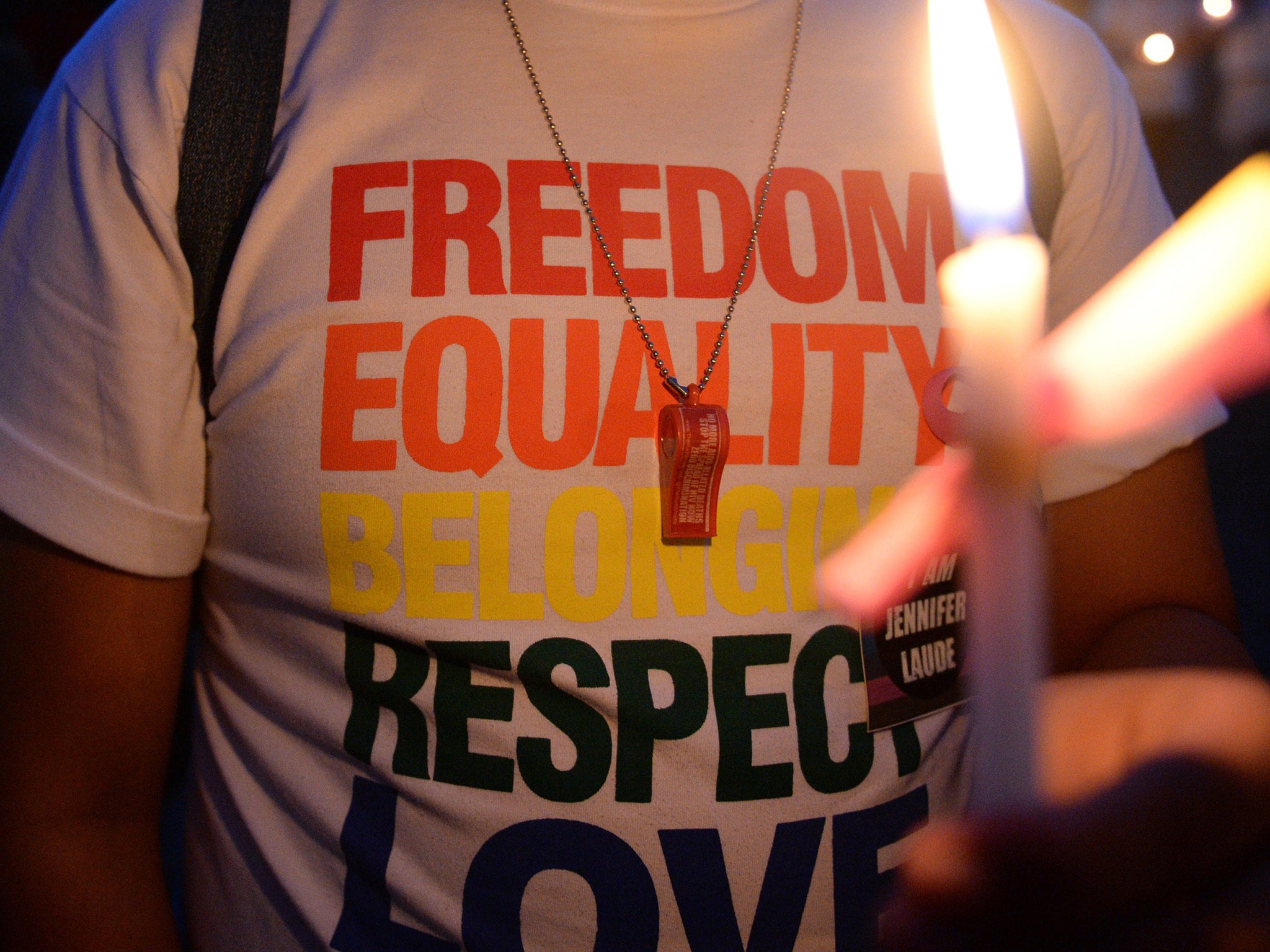LGBT people in Commonwealth states are still treated as second-class citizens
Gay men are the most frequent targets but the stigma also affects lesbians

Your support helps us to tell the story
From reproductive rights to climate change to Big Tech, The Independent is on the ground when the story is developing. Whether it's investigating the financials of Elon Musk's pro-Trump PAC or producing our latest documentary, 'The A Word', which shines a light on the American women fighting for reproductive rights, we know how important it is to parse out the facts from the messaging.
At such a critical moment in US history, we need reporters on the ground. Your donation allows us to keep sending journalists to speak to both sides of the story.
The Independent is trusted by Americans across the entire political spectrum. And unlike many other quality news outlets, we choose not to lock Americans out of our reporting and analysis with paywalls. We believe quality journalism should be available to everyone, paid for by those who can afford it.
Your support makes all the difference.I’ve always been grateful that I was born in the second half of the 20th century. I was at school when abortion was decriminalised and a student when women were given a legal right (in theory) to equal pay. This steady progress towards the sunlit uplands of equality continued in 1991, when the House of Lords removed men’s right to rape their wives. I was astounded to discover that husbands had enjoyed immunity from prosecution for rape since 1736, until even the Law Lords concluded it was “anachronistic and offensive”.
Astonishingly, some form of “right to matrimonial rape” is still in force in most Commonwealth countries. It exists alongside other archaic laws, many aimed at gay people, which have a draconian effect on intimate relationships. Gay men are the most frequent targets but the stigma affects lesbians as well, even in jurisdictions where sexual relations between women are not specifically prohibited. David Cameron has promised to raise the issue at the Commonwealth heads of government meeting in Malta next weekend, armed with a report from the Human Dignity Trust on the effects of discriminatory laws on LGBT people.
In the past few years, the situation has got worse. India decriminalised same-sex relationships between consenting adults in 2009, but this was reversed by the Supreme Court in 2013. New laws in countries such as Uganda, which last year increased sentences for people found guilty of same-sex relationships, are sometimes used to suggest that prejudice is rooted in local culture. But it’s also a legacy of colonialism, and its legal framework based on traditional English law that treats gay people and women as second-class citizens.
This is rarely acknowledged when right-wing historians talk wistfully about the British empire. Most Commonwealth states retain laws that reflect punitive Victorian (and earlier) attitudes: gay sex is illegal in 40 out of 53 countries, while almost half fail to recognise that men can be raped too.
Think about this country, before homosexuality was decriminalised in 1967, when gay people had to conceal relationships and live in fear of blackmail; that’s the situation in one Commonwealth country after another. Except that it’s worse: effective HIV education is next to impossible where homosexuality is stigmatised; Commonwealth states account for 30 per cent of the world’s population but have more than 60 per cent of HIV cases.
But change is always possible. In 1988, Tory MPs voted for Section 28 of the Local Government Act, which banned local authorities from “promoting homosexuality”. Just over 20 years later, Cameron apologised for it, and his government legalised same-sex marriage in 2013. I’m sure the Prime Minister doesn’t want to lecture leaders of Commonwealth countries. But if even the British Tory party has managed to embrace equality, so should they.
Join our commenting forum
Join thought-provoking conversations, follow other Independent readers and see their replies
Comments